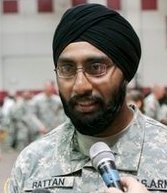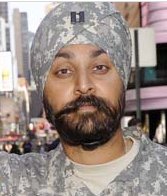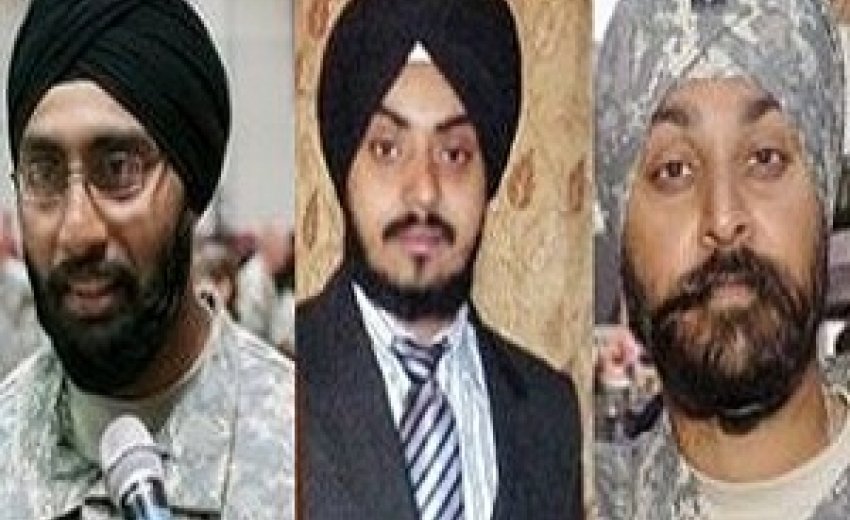 |
 |
 |
| US Military | ||
Washington, September 25, 2010: Growing up near the air force base in Dayton, Ohio, Tejdeep Singh Rattan knew he wanted to serve in uniform. When the military discouraged him, he persisted but again got a cold shoulder. When he was turned away a third time, Rattan -- an observant Sikh with a turban and beard -- became suspicious.
"I was, like, I don't know what's going on," he said. "I was very introverted at the time. I never felt the need to fight back. But I said I really want to do this, and you guys are sending me out again and again."
The 31-year-old is now US Army Captain Rattan, since July the head dentist at the Fort Drum base in New York.
In what appears to be a quiet shift, the US military since last year has allowed Rattan and two other Sikhs to serve while retaining their turbans and beards, which are required by their faith.
Rattan and another Sikh who received approval last year -- Captain Kamaljeet Singh Kalsi, a doctor -- said in interviews that their superiors had welcomed them warmly.
Kalsi, 34 said that on his first day of training at Fort Sam Houston in Texas, a first sergeant pulled him out of the crowd and told the soldiers about the Sikh's long ordeal to enlist.
"These were his words: 'The Army is made up of different shades of green, and if you have any objection to him being here, you need to tell me now,'" Kalsi said. "It was great; everybody clapped."
The US Sikh community -- estimated at more than half a million -- suffered hate crimes after the September 11, 2001 attacks by assailants who falsely associated the religion founded in India with al-Qaeda leader Osama bin Laden.
"I think the only way for that perception to be eliminated is when young Sikhs come up and say: I want to serve in the military," Rattan said.
"For me, I said whatever it takes, I'm going to fight this thing -- I'm going to serve. Maybe if nothing else comes out of it, people will know who Sikhs are," he said.
Sikhs have a historic military culture and have long kept their articles of faith in the militaries of Britain, Canada and India.
Small numbers of Sikhs for years served in the US armed forces without incident. But in the 1980s, the post-Vietnam War military moved to increase conformity and banned displays of religious identity for new recruits.
The Supreme Court in 1986 upheld the military's right to prohibit a Jewish officer from wearing a yarmulke. In response, Congress approved a law requiring the military to approve soldiers' religious apparel if it is "neat and conservative."
Army spokesman George Wright said that it evaluated each Sikh soldier's request based on "unique facts and individual circumstances."
"It is the Army's policy to accommodate religious practices as long as the practice will not have an adverse impact on military necessity," Wright said.
[In this connection reference may be made to an article in SikhNet entitled: Passage of State Resolution Honoring Sikh Community - ACR 181Honoring Sikh Community-ACR-181] - Editor.
